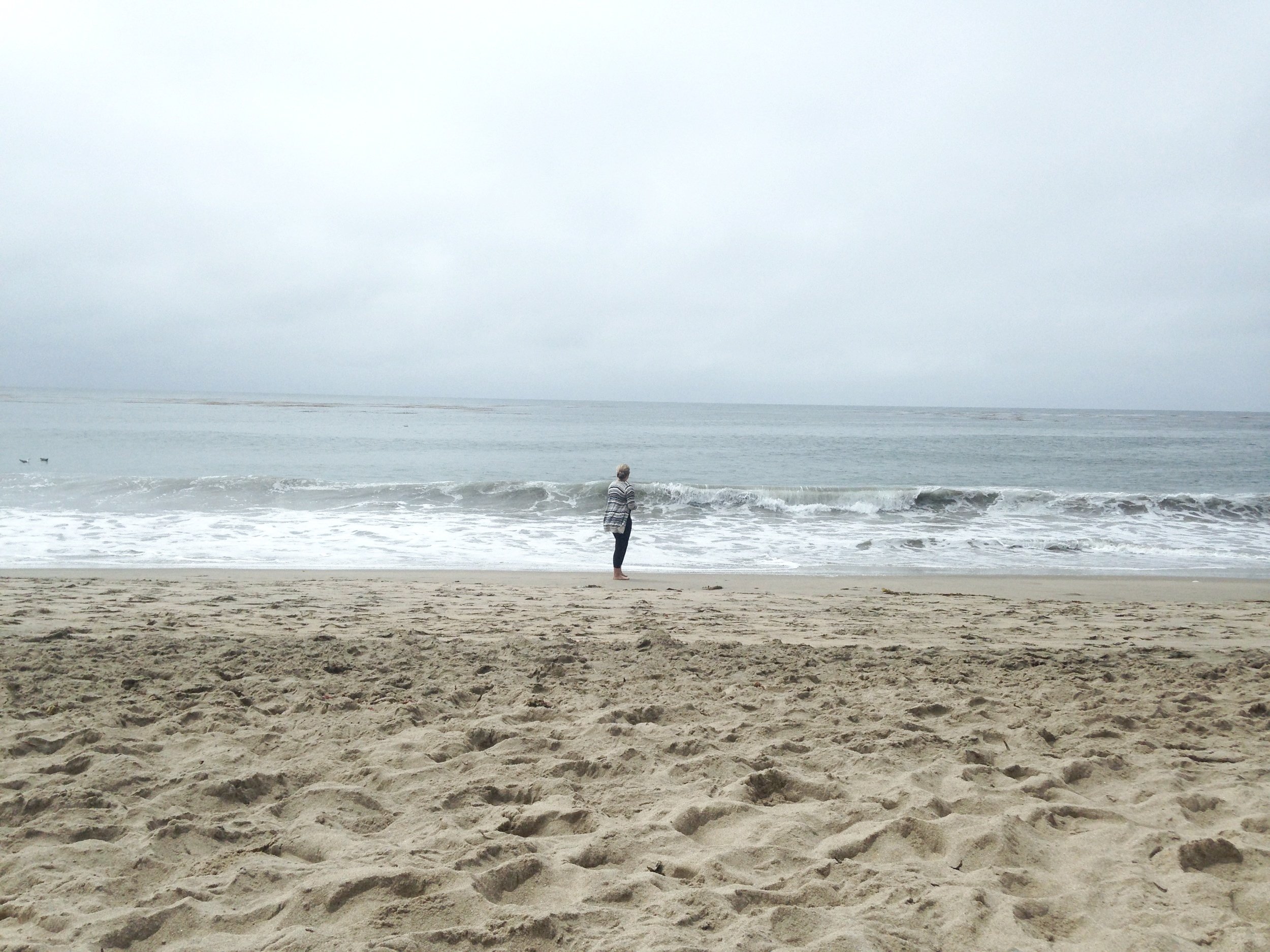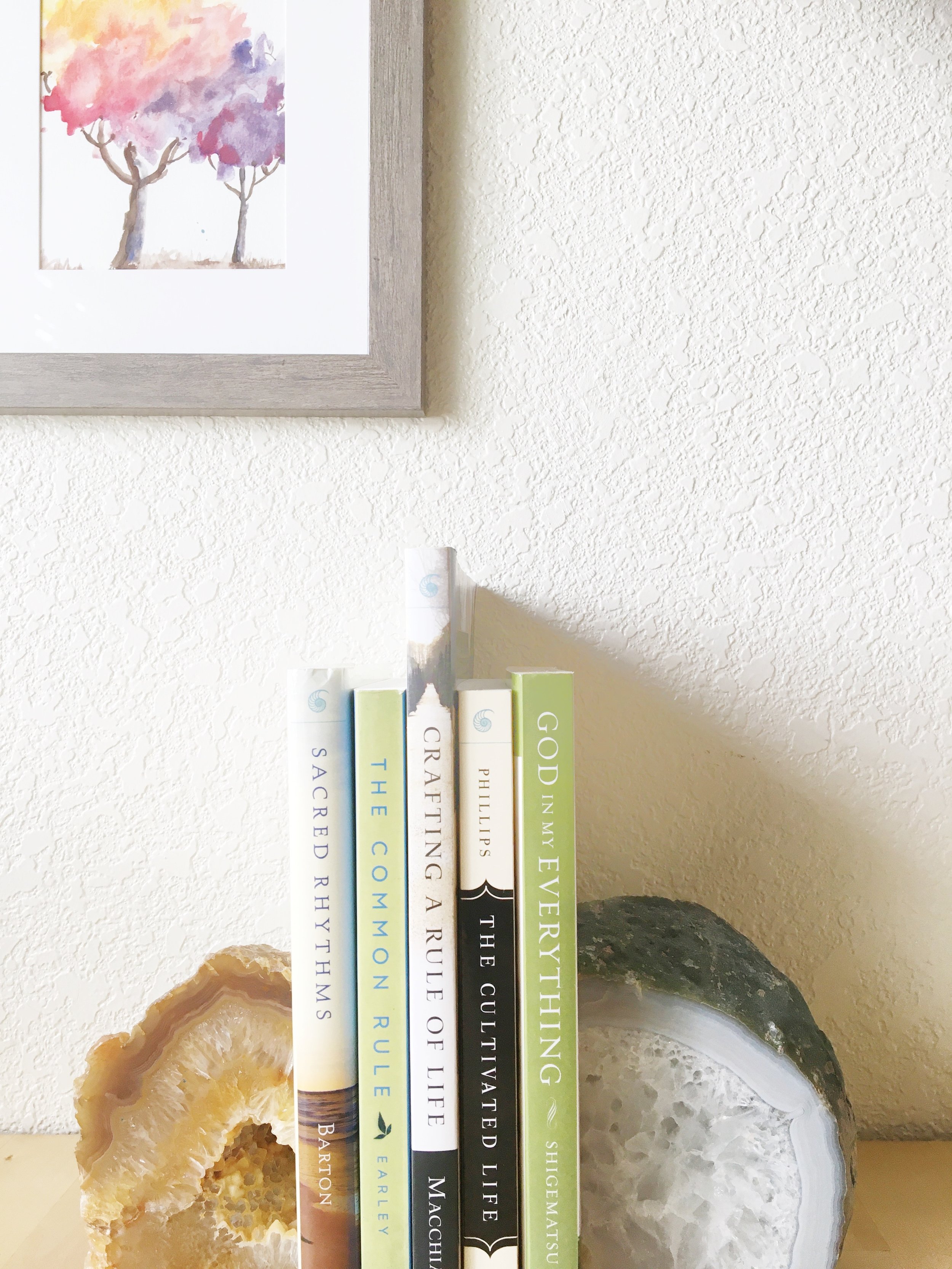
A Simple Practice to Orient Your Life in Christ (Especially in Lent)
A few years ago, Rachel and I participated in a 12-week version of the Ignatian Exercises as part of our spiritual direction training. The exercises, called "A Retreat in Everyday Life," is a series of scriptural meditations, prayer, the examen, and processing with a spiritual director. The creation and significance of the Ignatian Exercises is a post for a different time (although we have highlighted the prayer of Examen in previous posts).
As part of this experience, each day we would pray and reflect on what was called "The grace I ask for." These were short, one-sentence requests that were connected with the themes. "The grace that I ask for" stayed the same for a full week.

A rule of Life for 2021
"Where is the Life we have lost in Living?"
-T.S. Elliot
Last week, we invited you to reflect on the previous year, noting how you saw God move in your life, and how you saw his faithfulness in the midst of everything that happened in 2020. As we begin this new year (which has certainly been off to a disorienting start in its first week), we want to invite you to craft a Rule of Life.

Breath Prayer: For When You Don’t Have Many Words
As we continue to journey through varying degrees of social distancing, sheltering in place, quarantining, and hunkering down at home, I wanted to offer a prayer practice that may be helpful.
I have to admit that prayer has been a bit off for me the last few weeks. I just haven’t quite been able to find the words, and there have been some moments when God has felt very far away. Aside from intercession and praying for others, the easiest forms of prayer lately have been the Lord’s Prayer, those written by others (there are some beautiful prayers being shared via social media right now, aren’t there?), and breath prayer.

10 Daily Practices That Are Helping Me to Stay Grounded
As I’ve talked with friends, family, and those we are caring for in this season, I’ve realized that we’re all making some unique discoveries about ourselves, our faith, and our priorities in these uncertain times.
Working from home or being laid off, trying to give our kids structure and at-home education, making more meals at home and getting creative with what we have available, college kids having to come home to finish their semester online, sanitizing and hand-washing, working essential jobs that place us in harm’s way, new grocery store protocol, stressing about loved ones getting sick or fears about our national and global economy have forced us to redefine our day-to-day.
But we’ve also had to confront grief, anxiety, trauma, fear, loneliness, and lack of resources. Our sense of security and control (most of which has been false all along…) has been shaken, shattered, and scattered.
That’s a lot to process, adjust to, and hold, friends.

Defining Spiritual Formation, Spiritual Disciplines, and Spiritual Direction
Spiritual formation. Spiritual direction. Spiritual disciplines.
These are terms we often use at CURATE, because we are, after all, a spiritual formation and soul care ministry. But we’ve been asked some version of these questions fairly often:
“So....what exactly is spiritual formation? And what’s spiritual direction? And what to you mean by spiritual practices and spiritual disciplines?”
Not only are we asked these questions, but we’ve also noticed that some folks use these terms interchangeably, because they are so very similar and are intertwined with one another when it comes to who we are becoming as people of faith. While related to one another, these three terms are distinct.

Retreat, Part 1: Why Getting Away is So Good for Your Soul
I love retreats.
As a former Young Life staffer, some of my favorite memories are from staff or leader retreats at Crooked Creek or Frontier Ranch, women’s retreats at Trail West Lodge, or from church women’s retreats I’ve been a part of over many years. Most of these retreats, though, are packed full of content, meetings, listening to speakers, lots of conversation, playing games, and squeezing in a nap in the afternoon, if I’m lucky.
What I really long for on retreat, though, is what Jesus invites his disciples into in Mark 6:30-32, right after they’d been sent out to do ministry (and just before the feeding of the 5,000):
“The apostles returned to Jesus from their ministry tour and told him all they had done and taught. Then Jesus said, ‘Let’s go off by ourselves to a quiet place and rest awhile.’ He said this because there were so many people coming and going that Jesus and his apostles didn’t even have time to eat. So they left by boat to a quiet place, where they could be alone.”
Right in the middle of their busy lives and work and to-do’s, Jesus invites them to come away and rest awhile, even as crowds are following them. He gives them permission to step away, to retreat from the soul-weary battles of ministry, and rest with him.

Silence and Solitude: A Practice to Try in the New Year
Truthfully, I used to think of silence and solitude as practices for refreshment, renewal, and getting away from people and set aside responsibilities. But they are not designed to make me feel rested. They’re designed to strip away all the distractions, let me see myself clearly, and allow me to hear the voice of God. Nouwen calls silence and solitude “the furnace of transformation” (The Way of the Heart, p. 13). Deliberately placing myself into a furnace sounds like the very opposite of restful.
But friends, I am in need of practicing silence and solitude myself right now. Desperately. (I think that’s the real reason why I’ve procrastinated writing this post…) I can feel in my soul a deep, deep longing to get away from noise, words, instagram posts, unsettling news stories, the world telling me what I should want and have and do. To instead be so satisfied with the quiet presence of God that words are unnecessary. There’s a quote from Spurgeon that has been playing in my head the last few days, in which he says that “contemplation, still worship, unuttered rapture, these are mine when my best jewels are before me. Brethren, rob not your heart of the deep sea joys; miss not the far-down life.”
Rob not our hearts of the deep sea joys.
Miss not the far-down life.
So, let’s plumb the depths and learn this far-down life together, shall we?

Praying Scripture: The Time-Tested Practice of Lectio Divina
The Psalmist declared to have hidden the word in his heart, and that it was “sweeter than honey” (Ps. 119:11, 103), and Paul encouraged us in Colossians 3:16 to “let the word of Christ dwell in you richly.” I’ve never found a practice of reading scripture that invites me to do the same quite like lectio divina!
I was first introduced to this ancient practice while on staff with Young Life, when Bob and Claudia Mitchell led us through it at a staff retreat a decade ago. Their love for the words of Scripture were only unmatched for their love for the God these words revealed, and I was captivated. I wanted to know the heart of Jesus the way that they did, and so began my journey with lectio divina.

The Psalms: Our Language of Prayer
Last week, hundreds of thousands of people were without power and electricity for several days across Northern California. It’s currently peak wildfire season, and in an effort to prevent power lines sparking during a windy few days, a major utility company made the difficult decision to cut power in our area. Honestly, it was difficult not to be frustrated during those couple of days — with all the throwing food out of the fridge (and thinking about local businesses who would lose so much money, or families who can’t afford to lose what food they have), stumbling around a dark house with headlamps and candles, showering at a friend’s house who was fortunate enough to have hot water, having to charge my phone in my car, and being without internet access.
You'd have thought that a lack of electricity would have been an encouragement to enjoy being unplugged and unhindered by the distraction of screens for a few days (especially after our recent post on Practices of Resistance!), but I mostly felt oddly disoriented and on edge. Being stuck in darkness for a few days had a disorienting effect on my mind, body, and spirit.
Walter Brueggeman writes about this idea of disorientation in his book Praying the Psalms. He suggests that our faith moves through three phases: “(a) being securely oriented; (b) being painfully disoriented; (c) being surprisingly reoriented” (p. 2). We long for the security of a sense of “equilibrium,” when things feel settled and normal—such as having full access to power, electricity, running water, and internet. While there are some Psalms that reflect this season of secure orientation, but a majority of the Psalms are laments, cries out to God when we experience disorientation.

Rule of Life Book recs
Five of our favorite resources to accompany you as you craft your own Rule of Life
